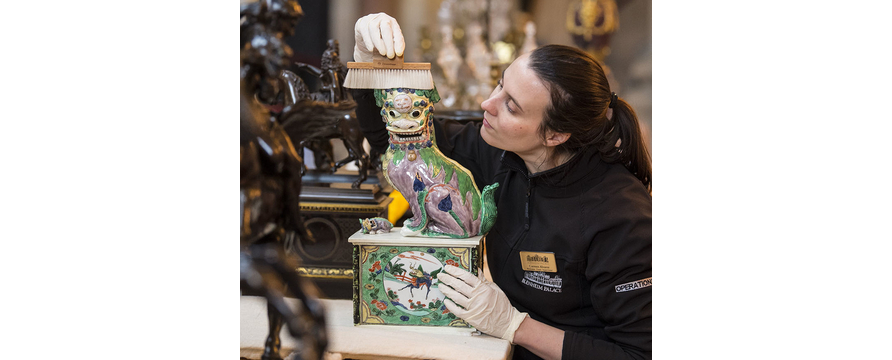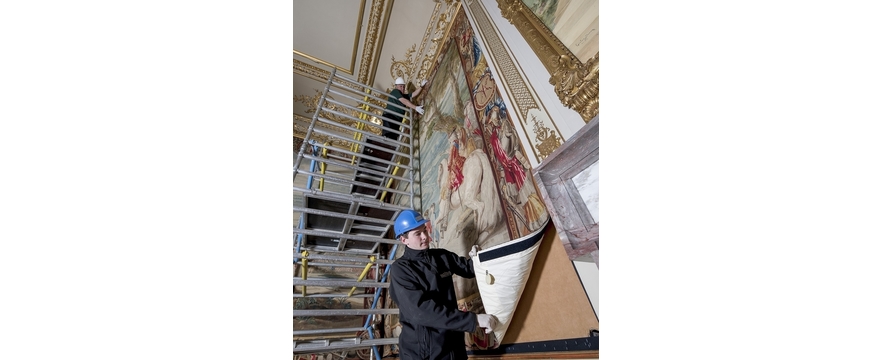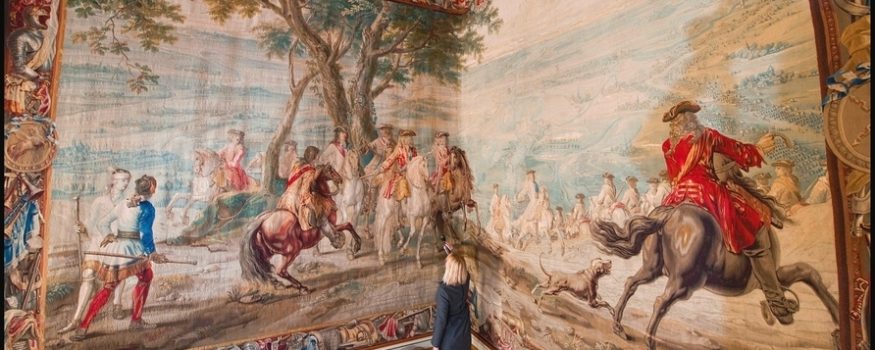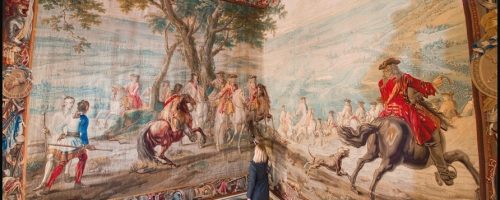Blenheim Palace is launching a Year of Restoration in 2020, beginning with Restoration and Conservation Tours which allows visitors to see behind the scenes of their historic State Rooms.
The tour will be exclusively available from 10 January to 9 February 2020, running twice a day excluding Sundays. The tours will tie in with the annual deep clean of Blenheim Palace which will now be on full display to visitors during this period.
Kate Ballenger, Head of House & Collections at Blenheim Palace said, “Each year, when the Palace is usually closed, the Operations team, accompanied by various specialists, complete the ‘deep clean’. This process is much more than just cleaning, it is the careful review of the entire collection followed by a thorough cleaning programme alongside the ongoing conservation and restoration work. This tour of the Palace gives insights into both the deep clean and the conservation and restoration that is happening at present and has happened in the past.”
The tour will also show visitors two important aspects of running a 300-year-old Palace, including restoring a piece of art, building or tapestry to its original condition, visitors will learn about preservation and repair of the historical and cultural site and its artefacts. The tour will also examine the theme of renovation, exploring how Blenheim Palace must also modernise and remain as a comfortable family home and appealing to visitors.

Blenheim Palace/© Mark Hemsworth
The fascinating tour will also look at the most impactful projects including The Eyes in 1928. Painted for the second wife of the 9th Duke, Glady’s Deacon, these have a great visual impact on visitors. Exposure to the elements over 80 years had caused the painting and plaster work to degrade to a point where they were barely visible.
From clocks to paintings, each piece of work often requires a specialist and niche attention, with specialists sought from all over the world to complete the painstaking tasks of restoring priceless pieces of history. The job of cleaning the China collection used to fall to the 10th Duchess and her administrator, Archie Illingworth – the Duchess would wash the China and it was Archie’s responsibility to dry it.

Blenheim Palace/© Mark Hemsworth
One of the recent renovations is the Bouchain Tapestry, the priceless 18th-century tapestry depicting one of Britain’s most important military victories is 25ft wide and almost 15ft high. The giant wall hanging is made of wool and silk and was woven in the Brussels workshop of the Flemish weaver, Judocus de Vos.
Part of a set of 10, the tapestries are the most accurate and detailed contemporary records that exist of the campaign, not least because of the 1st Duke, John Churchill, provided accurate battle plans and portraits of the principal characters. After being painstakingly removed from the walls of the Palace’s Second State Room, the tapestry was carefully rolled up before being transported back to the city, it was originally created in for renovation which took a year to completely restore.
For more information about Blenheim Palace’s January tour, please visit the website.










